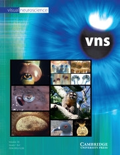
VISUAL NEUROSCIENCE
Scope & Guideline
Unlocking the Mysteries of the Visual Brain
Introduction
Aims and Scopes
- Neurophysiology of Visual Processing:
The journal publishes research on the neurophysiological aspects of visual processing, including the study of retinal cells, visual pathways, and cortical processing. - Visual System Evolution:
It explores the evolutionary aspects of visual systems across different species, providing insights into the adaptations and functional diversifications of visual mechanisms. - Retinal Pathologies and Disorders:
Research concerning various retinal diseases, such as glaucoma and diabetic retinopathy, is a core focus, emphasizing the impact of these conditions on visual function. - Experimental Techniques in Vision Science:
The journal encourages the use of advanced experimental methodologies, including electrophysiological recordings, imaging techniques, and computational modeling to understand visual processing. - Cross-Species Comparisons:
A unique contribution of the journal is its emphasis on comparative studies between different species, facilitating a broader understanding of visual mechanisms and their evolutionary significance.
Trending and Emerging
- Molecular Mechanisms in Retinal Health:
A surge in studies examining molecular pathways and their roles in retinal health and disease has been observed, highlighting the importance of understanding underlying biological processes. - Impact of Aging on Visual Function:
Research focusing on how aging affects visual function and processing is increasing, indicating a growing recognition of the implications of age-related changes in vision. - Neuroinflammation and Retinal Disorders:
The exploration of neuroinflammatory processes in retinal diseases such as diabetic retinopathy is a rising theme, underscoring the importance of inflammation in visual pathologies. - Comparative Visual Neuroscience:
There is an emerging trend in comparative studies across species, which enhances our understanding of visual systems by examining evolutionary adaptations and functional diversity.
Declining or Waning
- Behavioral Studies in Vision:
There has been a noticeable decrease in publications focusing on behavioral aspects of vision, suggesting a shift towards more molecular and cellular studies. - Macroscopic Imaging Techniques:
Research utilizing large-scale imaging techniques for understanding visual systems appears to be waning, possibly due to the increasing sophistication of smaller-scale methods. - Neuroanatomical Mapping:
Although still relevant, detailed neuroanatomical mapping studies have become less frequent, as more emphasis is placed on functional studies and dynamic imaging.
Similar Journals

Clinical Optometry
Fostering Collaboration in the Realm of Clinical Optometry.Clinical Optometry is a prominent open-access journal published by DOVE MEDICAL PRESS LTD, dedicated to advancing the field of ophthalmology and sensory systems. Established in 2010, this journal provides a platform for impactful research and insights that facilitate the understanding and treatment of visual disorders. With an impressive Scopus ranking of #58 in Ophthalmology and #28 in Neuroscience & Sensory Systems, Clinical Optometry is recognized for its contributions to the academic community, correlating with a Q3 classification in Ophthalmology and Q4 in Sensory Systems as of 2023. Based in New Zealand, this journal encourages researchers, professionals, and students to disseminate their findings, fostering a culture of knowledge sharing and collaboration in the field. For those interested in cutting-edge research, Clinical Optometry serves as an essential resource, offering a comprehensive collection of articles that enhance the understanding of ophthalmologic science.
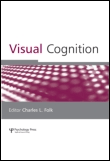
VISUAL COGNITION
Decoding the Complexities of Visual ThoughtVISUAL COGNITION, published by Routledge Journals, Taylor & Francis Ltd, is a leading academic journal dedicated to the nuanced understanding of visual processing and cognition. Since its inception in 1994, the journal has become a pivotal resource for researchers and practitioners in fields including Cognitive Neuroscience and Psychology, having achieved a distinguished Q1 ranking in Arts and Humanities and impressive standings among its peers in experimental and cognitive psychology. With an impact factor reflecting its scholarly significance, VISUAL COGNITION serves as a forum for high-quality research articles that shed light on the cognitive aspects of visual perception. Although it operates under a subscription model, the journal remains committed to disseminating knowledge that inspires both established and emerging scholars alike. For those interested in the latest advancements in visual cognition, this journal promises a wealth of insights and rigorous scholarly dialogue.

Multisensory Research
Catalyzing Discoveries in Experimental PsychologyMultisensory Research is a premier academic journal published by BRILL, dedicated to advancing the fields of cognitive neuroscience, computer vision, and sensory systems. Established in the Netherlands, the journal boasts a diverse scope, exploring the integration of sensory modalities in both experimental and cognitive psychology. With its converged years extending from 2013 to 2024, Multisensory Research has consistently contributed valuable insights, earning a well-regarded position within various quartiles, notably Q2 in Computer Vision and Pattern Recognition and Q2 in Ophthalmology as of 2023. The journal’s rankings reflect its significant impact, with placements such as rank #50 in Ophthalmology and rank #84 in Experimental Psychology, highlighting its relevance to today's interdisciplinary research efforts. Available as an open-access platform, Multisensory Research ensures that innovative research is accessible to a wide audience, making it an essential resource for researchers, professionals, and students alike who are engaged in the dynamic study of multisensory integration.

Journal of Ophthalmic & Vision Research
Transforming Knowledge into Visionary SolutionsThe Journal of Ophthalmic & Vision Research, published by KNOWLEDGE E, stands as a crucial platform for disseminating high-quality research in the field of ophthalmology. With an ISSN of 2008-2010 and an E-ISSN of 2008-322X, this journal fosters open access to valuable insights since 2010, enhancing visibility and reach for researchers globally. Based in Dubai, UAE, it has established a reputation for excellence, reflected in its Q2 ranking in Ophthalmology for 2023 and its position among the top 65th percentile in Scopus. Covering a broad spectrum of topics within ophthalmic science, the journal serves as a vital resource for professionals, researchers, and students by presenting original research, reviews, and case studies that drive innovation and collaboration within the community. As the journal continues to contribute to advancements in eye care and vision sciences, it invites scholars to explore, engage, and publish within its pages, thus enriching the global discourse on ophthalmic health.

Annual Review of Vision Science
Advancing Understanding of Visual MechanismsThe Annual Review of Vision Science is an esteemed journal published by ANNUAL REVIEWS, focused on advancing the field of vision science through comprehensive reviews that synthesize current research and emerging trends. With an ISSN of 2374-4642 and E-ISSN 2374-4650, this journal has established itself as a leading source of high-quality academic content, boasting a prestigious Q1 ranking in the fields of Medicine (miscellaneous), Neurology (clinical), and Ophthalmology as of 2023. Its impressive Scopus rankings further attest to its influence, placing it in the top 5 within ophthalmology (96th percentile) and 31st in clinical neurology (92nd percentile). The journal aims to serve researchers, clinicians, and students alike by providing critical insights into vision science, thereby enhancing understanding and fostering innovation in both basic and applied research. Although not open access, the Annual Review of Vision Science remains a vital resource for those engaged in the study and application of vision science worldwide.
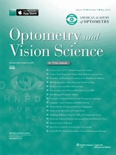
OPTOMETRY AND VISION SCIENCE
Inspiring Generations of Vision Scientists and PractitionersOptometry and Vision Science is a premier journal published by Lippincott Williams & Wilkins, dedicated to advancing the field of optometry and ophthalmology. With a rich history dating back to 1905 and a strong emphasis on scientific rigor, the journal has established itself as a vital resource for researchers, professionals, and students alike. Currently ranked in the Q2 category for both Ophthalmology and Optometry, it occupies a significant position in the academic community, as evidenced by its Scopus rankings of #61 among 137 in Medicine - Ophthalmology and #6 among 12 in Health Professions - Optometry. The journal publishes original research, clinical studies, and critical reviews that contribute to the understanding of visual science, the development of innovative practices, and the enhancement of patient care. Although it is not open access, its impactful content is available to subscribers and institutions, fostering a deeper insight into the complexities of vision science. As we approach the journal's centennial milestone in 2024, Optometry and Vision Science continues to reflect the evolving landscape of eye care research and is poised to inspire a new generation of vision scientists.

BRAIN AND LANGUAGE
Unraveling the Mysteries of Language and the BrainBRAIN AND LANGUAGE is a premier journal published by Academic Press Inc Elsevier Science, dedicated to fostering scholarly communication in the fields of Cognitive Neuroscience, Linguistics, Psychology, and Speech and Hearing. With its ISSN 0093-934X (Print) and 1090-2155 (Online), the journal has established a significant presence since its inception in 1974, continuing to provide valuable insights into the intricate relationship between brain function and language processing. This journal is highly regarded, boasting a 2023 ranking of Q1 in Linguistics and Language, reflecting its influential contributions to the field, alongside Q2 rankings in categories such as Cognitive Neuroscience and Experimental Psychology. With a rigorous peer-review process, it serves as an essential resource for researchers and professionals seeking to deepen their understanding of language mechanisms and their cognitive underpinnings. Despite not being an Open Access journal, BRAIN AND LANGUAGE ensures that its articles are widely accessible and of high quality, making it an indispensable platform for both emerging and established scholars aiming to expand the boundaries of research in language and cognition.
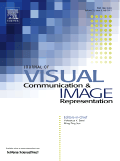
JOURNAL OF VISUAL COMMUNICATION AND IMAGE REPRESENTATION
Transforming Ideas into Visual NarrativesJOURNAL OF VISUAL COMMUNICATION AND IMAGE REPRESENTATION, published by Academic Press Inc Elsevier Science, is an influential platform dedicated to the realms of visual communication, media technology, and advanced image representation. With a strong focus on interdisciplinary approaches, this journal aims to foster the exchange of innovative ideas among researchers and professionals in the fields of computer vision, image processing, and signal processing. Recognized for its significance, it boasts an impressive impact factor within its category quartiles; notably, it ranks Q2 in Computer Vision and Pattern Recognition and Electrical and Electronic Engineering, while achieving Q1 in Media Technology. Based in the United States, the journal not only provides valuable insights into the latest developments from 1990 to 2024 but also encourages cutting-edge research that enhances multimedia systems and user interactions. As a vital resource for students, researchers, and industry professionals alike, the journal ensures a robust understanding of visual information processing, critical for navigating today's digital landscape.

AMERICAN JOURNAL OF OPHTHALMOLOGY
Illuminating Ocular Research Since 1918American Journal of Ophthalmology, published by Elsevier Science Inc, stands as a premier outlet for significant advancements in the field of ophthalmology. Established in 1918, this journal has a long-standing tradition of disseminating high-quality research, which is reflected in its impressive Scopus ranking, positioned at #8 out of 137 in the ophthalmology category, placing it in the 94th percentile. With its 2023 designation as Q1 in Ophthalmology, it serves as a critical platform for researchers, practitioners, and students who seek to stay at the forefront of ocular health and visual science. Although the journal does not currently offer open access options, it provides an array of access formats, ensuring that valuable research is available to a broad audience dedicated to the exploration and understanding of eye diseases and treatments. As it continues to evolve towards 2024, the American Journal of Ophthalmology remains essential for anyone engaged in ophthalmic research and clinical practice.
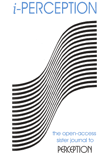
I-Perception
Fostering Collaboration in Perceptual ResearchI-Perception is a leading open-access journal published by SAGE Publications Ltd, specializing in the intricate interplay between perceptual processes across various disciplines such as Artificial Intelligence, Experimental and Cognitive Psychology, Ophthalmology, and Sensory Systems. With an ISSN of 2041-6695, this UK-based journal has been a vital resource since its inception in 2010. I-Perception occupies esteemed positions within several academic categories, including a Q2 ranking in Ophthalmology and Q3 rankings in both Artificial Intelligence and Experimental and Cognitive Psychology. These metrics highlight the journal’s relevance and impact, particularly in fostering interdisciplinary collaborations among researchers and practitioners. Accessible online, I-Perception encourages the dissemination of innovative findings and theoretical advancements, making it an essential platform for those passionate about understanding perception in its myriad forms. The journal's commitment to excellence is further reflected in its Scopus rankings, showcasing its influence within the respective realms of Medicine, Neuroscience, and Computer Science.